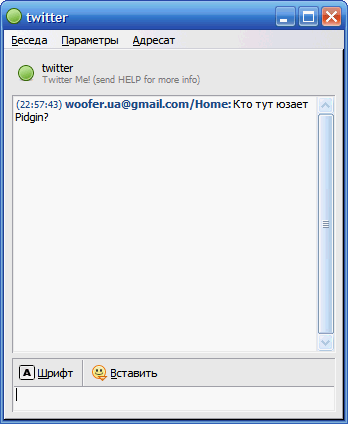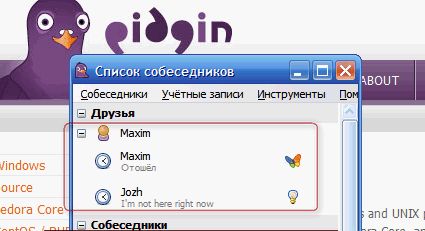Working in Linux earlier, I never got acquainted with the Pidgin messenger native to this environment, which, by the way, inherited the functionality of the Gaim messenger native to the GNOME window environment. My acquaintance began with a visit to the office of a Java developer friend, who very complacently announced that he had finally found a program that supports IM from Lotus, in which they work - Lotus Sametime, which is very rare in such a class of programs!
In addition to Sametime, Pidgin supports such protocols more familiar to our user as: AIM, ICQ, Jabber/XMPP, MSN Messenger, Yahoo!, IRC and a little more exotic: Gadu-Gadu, Novell GroupWise Messenger, QQ, SILC, SIMPLE and Zephyr, Bonjour. All this did not have the best effect on the size of the Windows distribution (which also carries GTK libraries not native to Windows for the Pidgin interface) — more than 11MB. During installation, you will also be offered to install a spell check — there is a check of Russian and Ukrainian. By the way, there is also a Russian interface here.

The conversation window looks extremely ascetic, which will scare someone away, and attract someone on the contrary, especially after monstroidal windows from the native ICQ client with banners and a lot of "useful" tools.

It is fair to note that Pidgin's conversation history should be stored in a readable HTML journal.
A very useful function of the client is support for meta-contacts, i.e., if you use several protocols, and you have some user in ICQ, MSN, GTalk and something else, then you can collect his contacts in one meta-contact for visual display and simple communication.

Pidgin supports a lot of plugins and works in all common operating systems, so if you have a lot of messengers and a huge number of contacts in cross protocols, then Pidgin will become an indispensable tool for you!